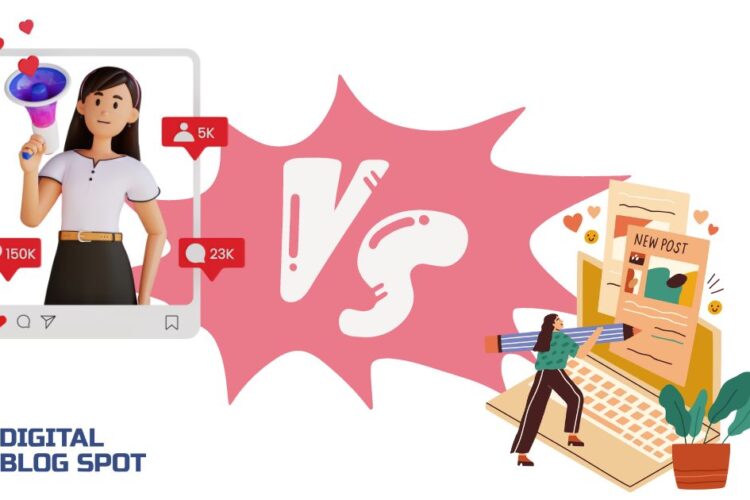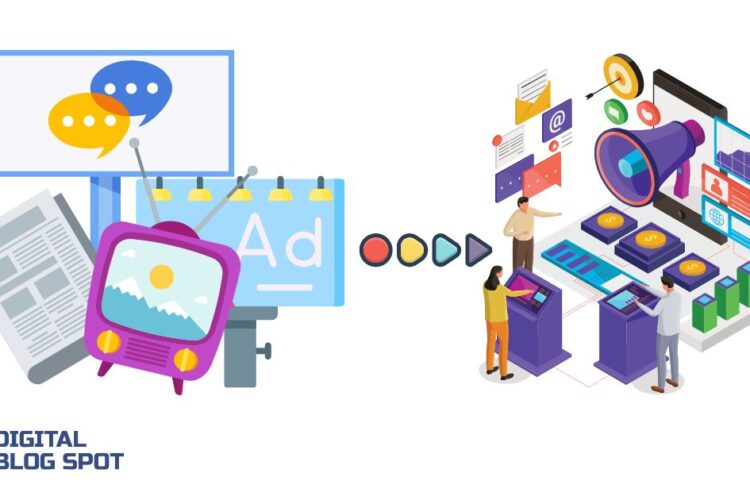
When it comes to Content Marketing vs Digital Marketing, there’s a thin line that stands between both definitions. And lately, both terms are getting repeated perpetually, often without understanding the key differences between them.
Lucky for you, this blog post sheds the spotlight on the core differences between Content Marketing and Digital Marketing to provide you with a clear understanding of both.
Let’s start by defining each
What is Digital Marketing
Digital Marketing is an umbrella term under which lies the creation and management of all digital communication channels, digital platforms, and online PR activities. In simpler words, Digital Marketing is the reflection of all traditional marketing efforts in the Digital world.
Digital Assets (Digital Platforms)
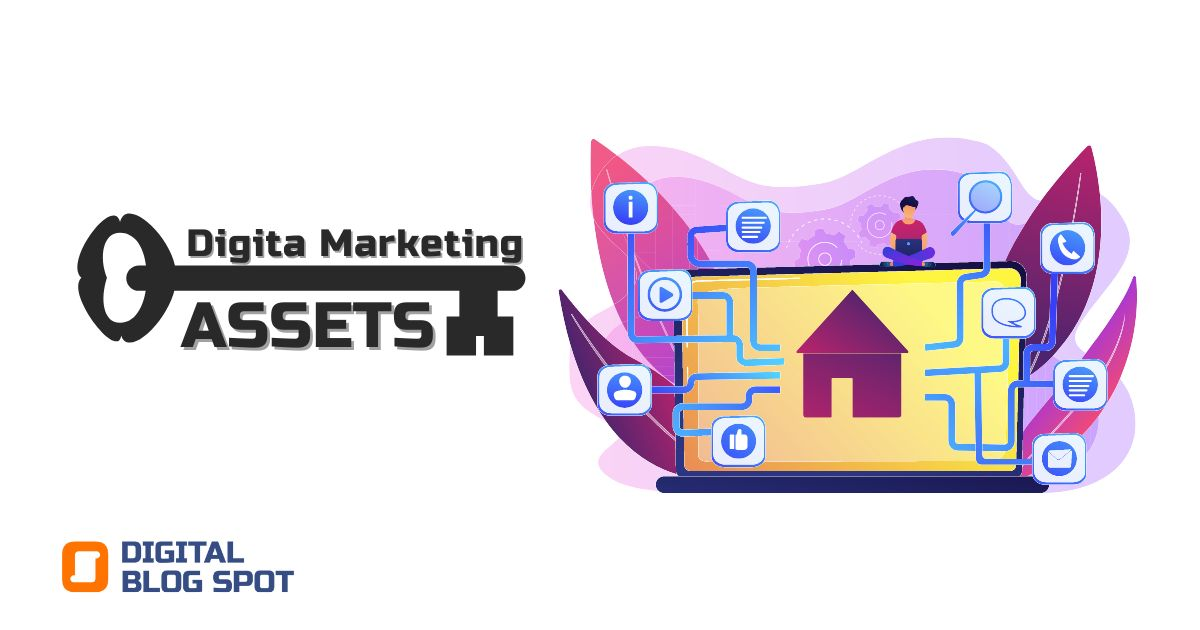
Just like your physical store or local business place, Digital Assets are your business’ representation on the online world.
Have you ever gone to a fashion store and found the storefront extremely poor, with stained glass and broken wooden frames? What was your first impression of that store? Would you consider checking the goods displayed inside such a store?
Your digital assets work the same way, they are the digital representation of your brand image. Establishing a clean, attractive digital representation, would totally make a great difference in the way your audience perceives your brand.
It may also lead to a higher conversion rate, as users tend to trust brands that have better visual media and are inclined to buy from them.
Digital Assets can take a wide range of forms, and among those are:
Official Website
Social Media Accounts
Google Business Listing
Profiles on Review platforms like TripAdvisor
Youtube Channels
Podcasts
I personally consider Digital Assets to be the infrastructure, on which all social media advertising, pay-per-click advertising, and all other forms of online advertising are based.
If your infrastructure wasn’t established properly, all the time invested in your advertising efforts would go in vain. But if you base your advertising on a solid foundation, you will get impressed by the results.
Digital Communication Channels
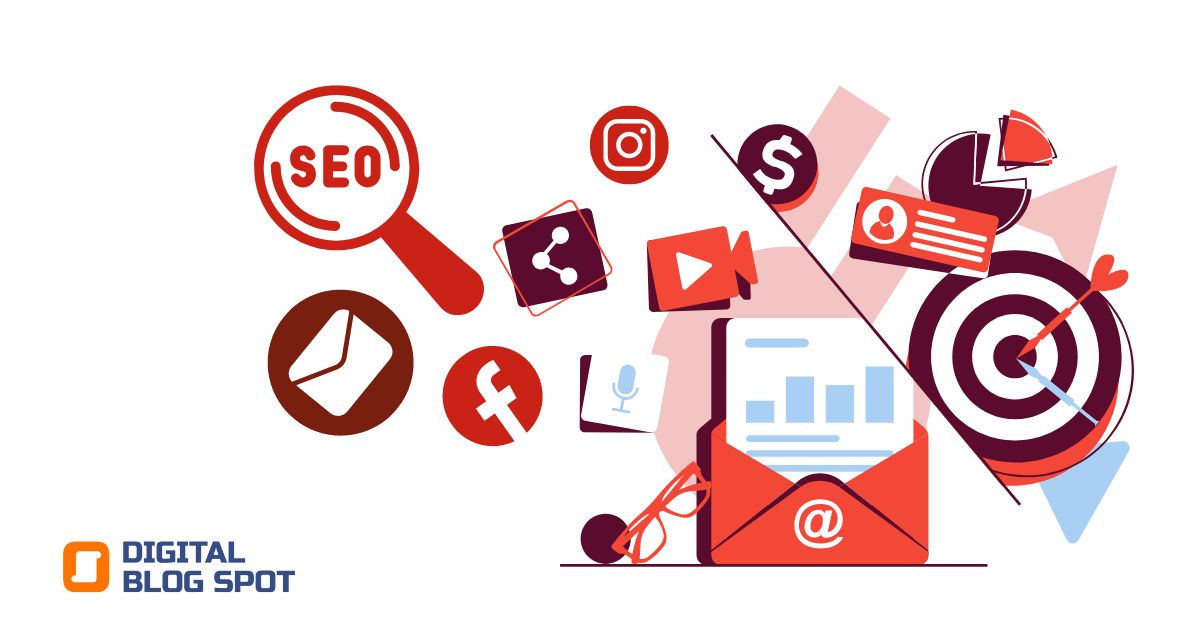
Communication channels are the medium through which a marketer (sender) communicates a message to their audience (receiver). The medium through which that message is communicated is called a Communication channel.
Digital Marketing Communications can take two forms, organic publishing, or a paid ad campaign.
Organic presence is the free version of digital communications, however alone it is never enough. As a result, paid advertisements are not an option nowadays.
Digital Marketing Communication Channels Include:
Social Media Marketing
Placing a social media marketing strategy is highly dependent on consistently publishing social media posts on the major social media platforms used by your target audience.
Each of those social media channels will require your social media strategy to include a monthly budget for paid ads running in order to achieve a sustainable level of exposure and awareness.
Search Engine Optimization
Never underestimate the power of search engines. Search engine optimization is the science of optimizing your website to appear among the top results for a specific keyword on the first page.
Search engines use a wide range of criteria to rank your blog post among other articles indexed for the same keyword. Hence, you will need to perform proper keyword research in order to come up with the most potential keywords for your business model.
Search Engine Marketing
Developing a Search Engine Marketing strategy is somehow close to search engine optimization. However, instead of considering the competitiveness of organically ranking on a keyword, you will consider the Cost per Click of placing an ad on it.
Search Engine Marketing as you understood is the paid version of SEO, which means paying Google and other search engines to get your website among the top search results.
Email Marketing
Building an email marketing strategy won’t be hard to understand and plan out. Yet, it can be a bit challenging to implement. Email marketing isn’t as easy as expected when it comes to implementation, as the technicality lying beneath it is not that simple.
But the science has proven that returning sessions convert at a 75% more than new sessions, which proves how valuable email marketing can be.
Video Marketing
Visual media is becoming more and more important. Users nowadays prefer fast delivery content methods as their lives become more and more fast-paced.
Videos are easier and more fun to consume than reading. And when you are trying to advertise or appeal to your audience in organic ways, making it simple and easy is all that matters.
With the coming of every new generation, we notice that short video content is growing in popularity more and more, and that’s why you should ride on the same train.
Display Advertising
One of the major communication channels considered for awareness since the internet has been available to the public is Display advertising on publishers’ websites.
The most common among that type of advertising is Google Display Network, which works as an intermediary between publishers in its network and advertisers.
Display advertising is mostly helpful for awareness, and to support conversion campaigns through Omni Channel marketing.
What is Content Marketing?
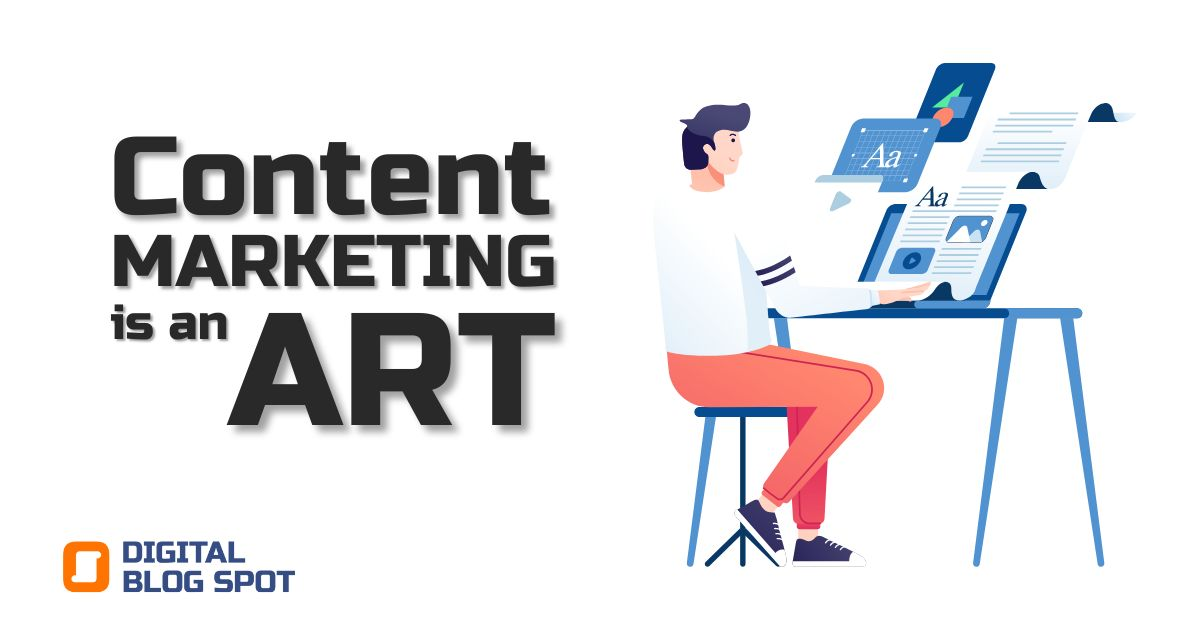
Content Marketing is the art of creating relevant, interactive, and helpful messages to your target audience, through videos, blogs, social media posts, or podcasts in order to generate awareness or build trust in your brand.
Content Marketing is different from Marketing content, in that the latter represents all forms of content that can be embedded in any business representation.
Does your company have a website? the text on your basic pages is marketing content, but not content marketing. Do you print flyers on a regular basis? the text message is marketing content but not content marketing.
You can consider “marketing content” as being a noun and “Content Marketing” as a verb.
What is a Content Marketing Strategy?
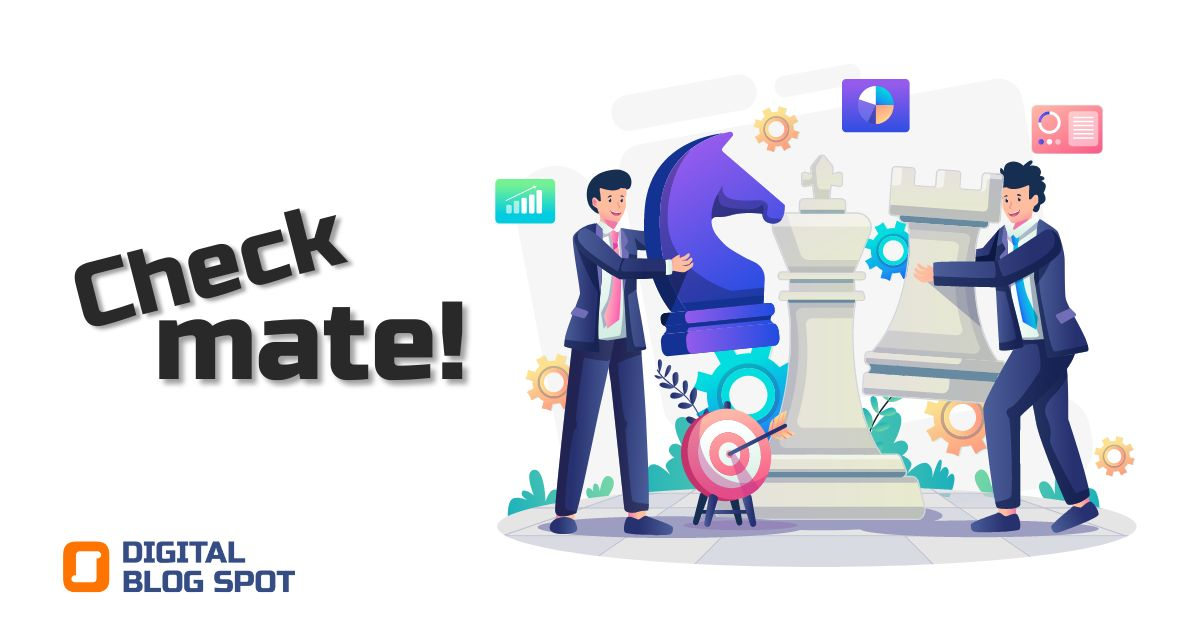
When you develop a Content Marketing strategy, you are looking at the set of platforms that you will be using and the types of content you will be sharing.
And much like any other science, you won’t be surprised to learn that content marketing has a learning curve to master as well.
If you don’t want to fall into the streamline of poor content creators who are just shoving the algorithm with useless content, you must learn and develop what is called “Quality Content”
just like Bill Gates said in 1996
Content is King
So Let’s dive deep into what actually is content marketing
Content can take several forms depending on the type of medium through which it is communicated by marketers.
What are the types of content?
There are three types of content that are part of any marketing activity and those are:
Readable Content

Readable content has been the first type of Content Marketing available over the internet.
Blogging has been around for ages, and the core value here is to create value for your users in the form of the most basic learning method, which is reading.
Blogging, on which the science of SEO has been based, allows you to consolidate and benefit from a consistent flow of organic traffic to your website.
The more keywords you cover, the more high-quality traffic you will get through any given month. And it is even considered a passive traffic source, as you don’t have to keep paying for your traffic to keep flowing.
Additionally, organic traffic can be considered as a consumer-to-business channel like PPC advertising; which is one of the most expensive advertising channels. That is due to its sourcing of high conversion potential customers.
Visual Content

Not a single digital marketing strategy nowadays should be clear of video content.
Year after year, video content value is growing and that is a result of newer generations preferring quick-to-digest content forms.
Video content used to exist since the 1990s. However, due to slow internet speeds, it was not widespread.
With the birth of Youtube in 2005, video content started to grow and claim its position. Businesses had the opportunity to upload their videos for free, and that was the spark of video content marketing.
Afterward, things started to develop quickly and social media introduced social media video content in 2010. Bit by bit video content was one of the most prominent content types over the internet and live streams started to gain a giant share on the newsfeed of every social media platform.
In fact, some platforms like Snapchat, and TikTok are now totally dependent on video content and live streams.
Audible Content
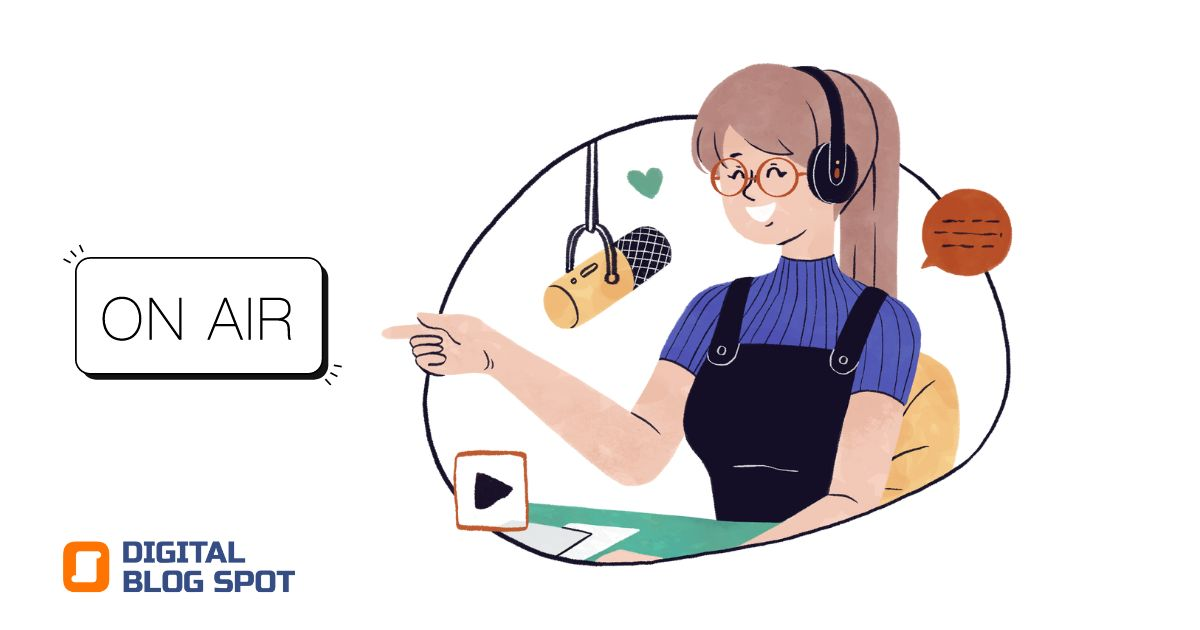
Audio content has been available for long, but it used to be only accessible on offline and online radio channels.
Lately, Podcasts started to grow significantly. That is a result of its convenience and accessibility. Users can listen to podcasts, while driving, painting, cooking, working on a repetitive task, or any sort of activity that doesn’t require the full presence of your thoughts.
In other words, podcasts can be the background of your daily autopilot activities.
And while the quality of voice and the human connection built through engaging narration of your messages are important, the quality of your content remains the main determinant of your podcast’s success.
A lot of businesses are undertaking podcasts as a part of their content marketing strategies.
How Does Content Marketing help my business?
The value of content marketing lies not only in the amount of traffic it can generate a month but in the trust it can build in the minds of your potential customers.
Most of the digital marketing efforts are aimed at building brand equity and trust along traffic-generating methods. And no better way than publishing quality content, positions you as a credible expert in your field of service.
Content marketing can be one of the most cost-effective communication channels, as it builds you a static base of meaningful monthly traffic at zero additional costs. That way you will have all the benefits of pay-per-click advertising while maintaining zero monthly spend.
So What is the Core difference between Digital and Content Marketing?
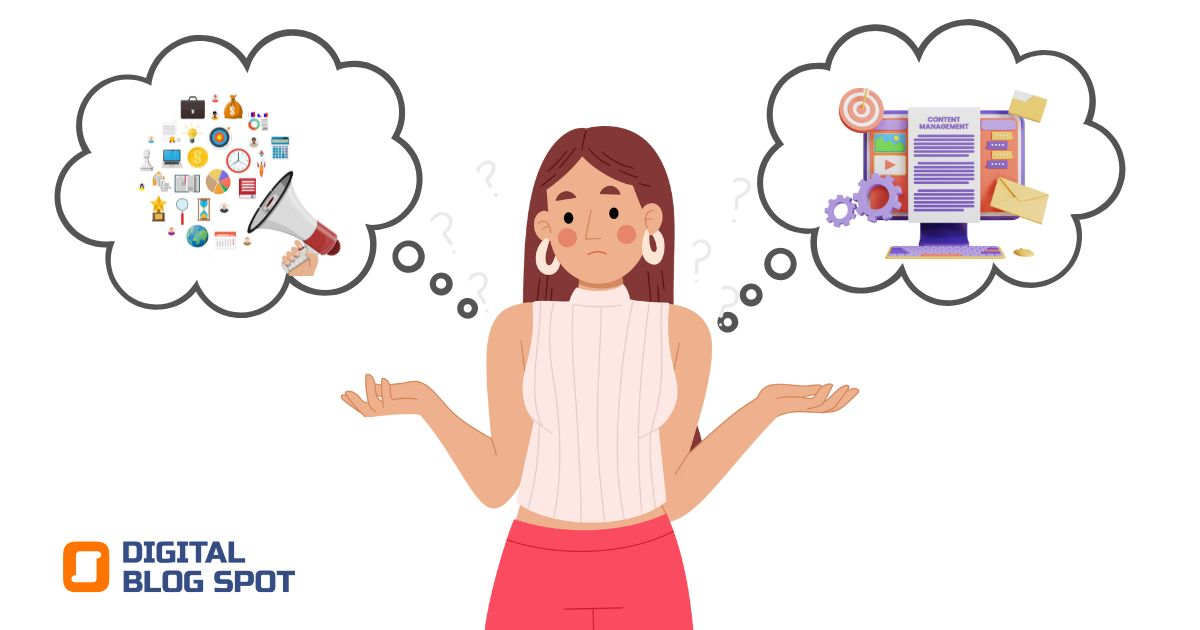
Content marketing focuses on generating quality content that matches the criteria of the relevant algorithm to rank and attract traffic to your website. Digital Marketing, on the other hand, encompasses all activities related to marketing brand promotion and digital marketing communication channels.
Thus, Digital Marketing can be considered as a more inclusive term that includes Content Marketing under its umbrella.
Content Marketing can be considered one of the major Digital Marketing tactics to establish a successful digital marketing strategy.
Conclusion: So Content Marketing vs Digital Marketing, which is the winner?
I have placed a tricky question here, and the answer is none. Neither Content Marketing nor Digital Marketing have an edge over the other.
The truth is, Content Marketing and Digital Marketing are not rivals, but pals. Developing a marketing strategy must include a Digital Marketing versatility of communication channels.
Digital Marketing encompasses all content marketing efforts and should consider it as a pillar for securing success.
In conclusion, understanding the differences between Content Marketing and Digital Marketing is crucial in crafting a successful overall marketing strategy. Both concepts, while intertwined, have distinct roles in promoting a brand and establishing a strong online presence.
Digital Marketing serves as the overarching framework that comprises all online promotional and engagement activities. It includes everything from email marketing and search engine optimization to social media marketing and display advertising.
On the other hand, Content Marketing focuses on the creation and distribution of valuable, relevant, and engaging content aimed at attracting and retaining a well-defined audience. It’s about building trust, increasing brand awareness, and establishing authority in your niche.
While Content Marketing is a part of Digital Marketing, it plays a special role in building relationships with customers and providing added value beyond traditional sales tactics. In the realm of digital marketing, content truly is king.
The key takeaway here is that both Digital Marketing and Content Marketing are vital for a brand’s success in the digital landscape. Employing both strategies synergistically will help your business reach its audience more effectively, build stronger relationships, and ultimately, achieve its marketing goals more proficiently. Remember, a single strategy is not a panacea for all marketing needs, but a combination of both can pave the way for comprehensive and effective marketing.



